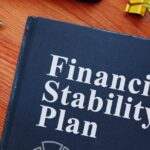Most people have debt at some point. But when it gets out of hand, it can turn into something called debt addiction. People with this disease feel the need to borrow money all the time. Even when they don’t need to or when it will hurt them. It’s important to know the signs of being stuck in debt and take steps to get out of debt.
Common Signs of Debt Addiction
Constantly Borrowing Money
The need to borrow money all the time is one of the most obvious signs of being addicted to debt. This could mean asking friends, family, or banks for loans all the time. Even when you don’t need to or when you’re already having a hard time paying back your other bills. Borrowing money all the time can be dangerous because it can trap you in a circle of debt that gets harder and harder to escape.
Hiding Debt from Loved Ones
People who are addicted to debt will often do anything to hide how much they borrow from their partner, family, or friends. They might hide their credit card records, lie about how much debt they have, or make reasons they need to borrow money. People often hide their debt because they feel ashamed, guilty, or afraid of being confronted, but it can also be a way to keep getting credit and spending money.
Inability to Stick to a Budget
Debt junkies often have trouble controlling their spending and living within their means, even when they make and stick to a budget. They might buy things without thinking, give in to pressure, or put short-term wants ahead of long-term financial security. If you can’t stick to a budget, you might end up taking money and getting more debt.
Experiencing a “High” from Spending
Some people who are addicted to debt say that buying things makes them feel good, even if they can’t afford them. This “high” can be like the feelings people who are addicted to drugs have, and it can be a way to deal with stress, worry, or other emotional problems. But after the short-term pleasure of spending, people often feel guilty, ashamed, and stressed about money.
Neglecting Other Financial Obligations
People who are addicted to debt may put paying off their debt ahead of paying for things like food, rent, or utilities. To get money to pay off debt or keep borrowing, they might miss payments or not meet other financial responsibilities. It’s possible for this to start a snowball effect where ignoring other financial obligations makes the debt problem worse.
Relying on Credit for Daily Expenses
When someone have debt addiction, they may use credit cards or loans to pay for things like food, transportation, or medical care. This dependence on credit may mean that their debt has gotten out of hand and they can’t meet their basic needs without borrowing money. Using credit to pay for everyday things can get you stuck in a circle of debt that is hard.
Applying for Multiple Credit Cards
People with debt addiction may open multiple credit card accounts to get more money, even if they are already having a hard time paying off their current debt. When they are accepted for a new credit card, they may feel relieved or excited because they see it as a short-term way to ease their financial stress. But this kind of behavior can quickly add up to a lot of debt in a lot of different accounts, which makes it even harder to handle and keep track of.
Feeling Anxious or Depressed About Debt
You can’t say enough about how bad debt addiction is for your emotions. Being in a lot of debt can cause stress, fear, and shame all the time, which can lead to anxiety, sadness, and other mental health problems. People with debt addiction may feel hopeless or stuck because they can’t see a way out of their money problems. Some people may turn to buying as a way to deal with their bad feelings, which can make the cycle of debt even worse.
It’s very important to get help and support if you or someone you care about shows any of these signs. With the right tools, help, and a strong desire to change, you can beat your debt problem. Don’t be afraid to talk to professionals, like therapists or financial experts, who can help you come up with a plan to get out of debt and build a better financial future.
Overcoming Debt Addiction
Acknowledge the Problem
Recognizing that you have a problem is the first and most important step in getting over your debt addiction. This process can be hard and stressful because you have to face the truth about your money problems and how they have affected your life. You need to be honest with yourself and admit that your debt is too much for you to handle on your own. You will need help to deal with it.
Seek Professional Support
Getting over a debt problem can be hard, so it’s important to have the right support system in place. You might want to talk to a financial counselor, therapist, or support group that helps people who have debt addiction. These experts can help you get back on your feet financially and guide you through the healing process by giving you useful information, tools, and resources.
Create a Debt Repayment Plan
After admitting you have a problem and getting help from a professional, the next step is to make a realistic plan for paying off your bills. Talk to a financial expert about your current income, expenses, and total debt to get a better idea of your financial position. They can help you look into ways to make paying off your debts easier, such as consolidating your debts, talking with your creditors, or starting a debt management program.
Cut Up Credit Cards
Eliminating the urge to spend more than you have is one of the best ways to keep your debt from growing. Get rid of all of your credit cards and accounts that you don’t need. It might be hard and make you feel bad, but you need to do this to break the circle of debt and start making better money choices. If you need to keep a credit card for emergencies or important costs, pick one with a low credit line and pay off the full balance every month.
Stick to a Budget
To get out of debt and become financially stable in the long run, you need to make a budget and stick to it. To make a detailed budget that includes all of your income and spending, you can work with a financial advisor or use budgeting tools. Make sure to put important costs like housing, food, and medical care at the top of your list. Then, use any extra money to pay off debt and save. Promise yourself that you will not spend more than you can afford and resist the urge to use credit.
Find Alternative Coping Mechanisms
Many people who have addiction to debt use spending as a way to deal with stress, worry, or other feelings they don’t want to show. To get out of this cycle, it’s important to find better ways to deal with stress. This could include things like working out, meditating, writing in a notebook, or doing hobbies that make you happy and satisfied. Forming a strong network of friends, family, or a therapist can also be very helpful for dealing with feelings and getting through the tough parts of healing.
Celebrate Small Victories
Stopping your addiction to debt takes time, and it’s important to celebrate every small step you take along the way. Set goals that you can reach, like paying off a certain credit card or cutting your total debt by a certain percentage. When you meet your goals, celebrate your success. As you work toward your final goal of being debt-free, celebrating your wins can help you stay motivated, gain momentum, and keep a positive attitude.
Build an Emergency Fund
As you get rid of your debt, you should start saving for an emergency fund so that you can pay for sudden costs without using credit. Try to save enough money to cover your living costs for three to six months. Keep this money in a separate savings account that you can easily get to in case of an emergency. When you face unexpected problems, having a financial safety net can give you peace of mind and keep you from going back into debt.
Conclusion
It will be hard to break free from debt addiction, but it is possible. You can get back in charge of your finances and build a more stable future if you pay attention to the warning signs and change the way you deal with money.
If you’re having trouble with debt and need professional help, you might want to look into MDR Financial‘s debt settlement services. There is a team of experienced financial workers there who can help you negotiate with your creditors and make a personalized plan to get out of debt.
FAQs
1. What is debt addiction?
A: Debt addiction is the need to take money all the time, even when you don’t need to or when the results will be bad.
2. What are some common signs of debt addiction?
A: People who are in debt often borrow money all the time, hide their debt from people they care about. They can’t stick to a budget. Moreover, they get “high” from spending, ignore their other financial obligations. Also they rely on credit for daily expenses, apply for multiple credit cards, and feel anxious.
3. How can I overcome debt addiction?
A: To get addiction to debt, you should admit you have a problem, get professional help, make a plan to pay off your debt, cut up your credit cards, stick to a budget, find other ways to deal with stress, enjoy small wins, and save money for emergencies.
4. What is debt settlement?
A: Debt settlement means talking to your creditors about lowering the total amount of money you owe. Usually, one can do this by lump sum payment that is less than the full due amount.
5. How can MDR Financial help with debt settlement?
A: MDR Financial has a team of experienced financial experts who can help you through the debt settlement process, talk to your creditors on your behalf, and make a specific plan to help you get out of debt.









